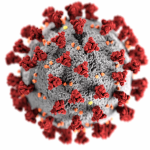Spread of Zika passes milestone in United States
By Elisabeth Eaves | August 1, 2016
It was unprecedented but not unexpected: On Monday, the Centers for Disease Control and Prevention issued a warning against travel to a part of the continental United States. As the Washington Post reported, the CDC advisory urged pregnant women to avoid a one-square-mile neighborhood of Miami, where in recent days, Florida confirmed 14 cases of Zika transmitted by local mosquitoes, the first such infections in the mainland United States.
More than 1,600 cases of Zika have been discovered on the US mainland, but until the new Florida outbreak, all had been contracted while the carrier was traveling overseas. (Usually transmitted by mosquito, the Zika virus can also be spread through sex.)
While Zika can be mild or even symptomless, it is frightening for expectant parents, as it causes birth defects including microcephaly, which is characterized by brain damage and an abnormally small head. Pediatrician and public health expert Annie Sparrow, writing for the Bulletin in June, called Zika “less deadly but in a way more terrifying than Ebola” because it attacks at the very beginning of life. “Not since Rubella, a vaccine-preventable disease responsible for stillbirth, brain damage, and blindness, have we seen a contagious disease capable of such congenital devastation,” she wrote.
Miami officials are spraying the affected area for mosquitoes. But the Miami Herald reported that “extensive spraying of insecticides in the area over the past several weeks has not reduced the local population of mosquitoes capable of transmitting Zika virus.”
Science writer Sonia Shah might not be surprised. In an interview with the Bulletin in March, the author of Pandemic: tracking contagions, from cholera to Ebola and beyond, called mosquito control a “very blunt instrument,” as it’s a system that calls for depressing a whole population of insects to get at the few that carry the virus. “The evidence from all the mosquito spraying they’ve done to try to stop dengue fever is that it hasn’t actually worked to diminish transmission,” she said.
The Bulletin first covered the Zika virus in January, when columnist Laura H. Kahn discussed the disease’s history and some of the human behavior that contributes to its spread: global travel and destruction of ecosystems.
Many experts agree that with a vaccine far off, it will take a major commitment of public will and resources to battle Zika in the United States, but whether that will come about looks dubious. As the Washington Post reported, “The Obama administration requested nearly $2 billion to prepare for the virus in February, but the House and Senate left for their summer recess last month without approving any new funding.”
Publication Name: The Washington Post
To read what we're reading, click here
Together, we make the world safer.
The Bulletin elevates expert voices above the noise. But as an independent nonprofit organization, our operations depend on the support of readers like you. Help us continue to deliver quality journalism that holds leaders accountable. Your support of our work at any level is important. In return, we promise our coverage will be understandable, influential, vigilant, solution-oriented, and fair-minded. Together we can make a difference.
Topics: Biosecurity, What We’re Reading














